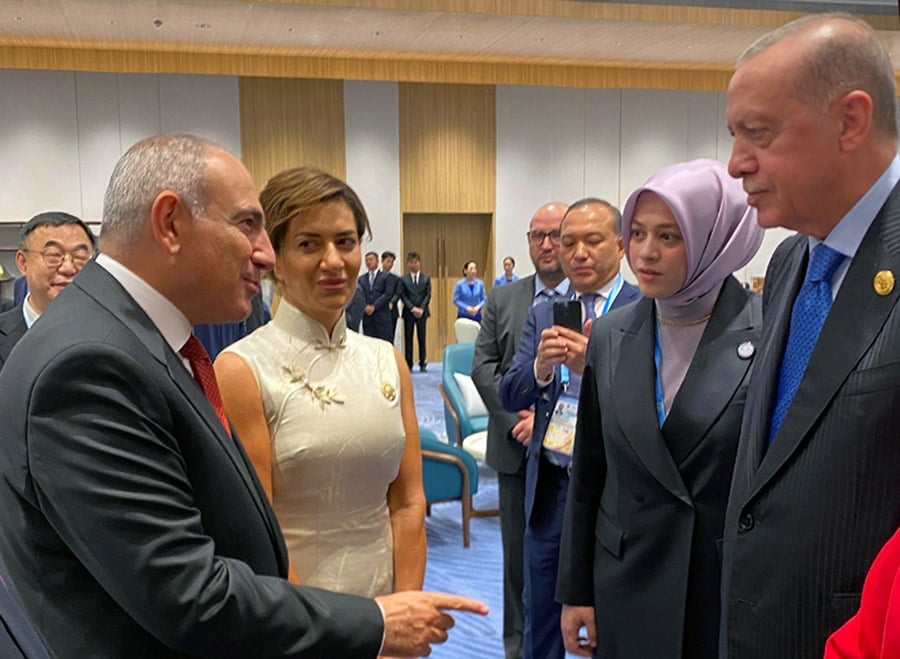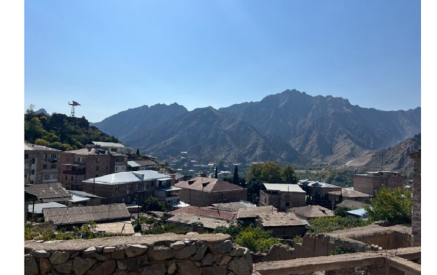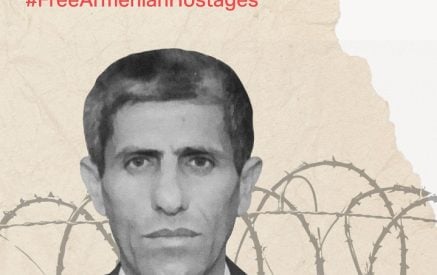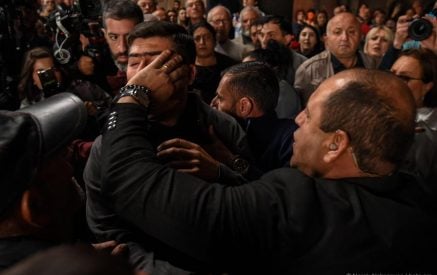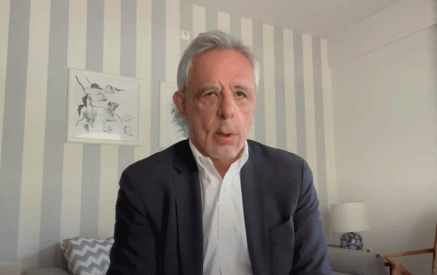By Harut Sassounian
The controversy over Israel’s lack of recognition of the Armenian Genocide erupted last week when Armenian-Assyrian blogger Patrick Bet-David asked Prime Minister Benjamin Netanyahu why Israel has not recognized the Armenian, Assyrian, and Greek genocides. Netanyahu wrongly replied: “In fact, I think we have. I think the Knesset [parliament] passed a resolution to that effect.” Netanyahu knows better than anyone that is not true, since he himself, as Prime Minister, has blocked several such Knesset resolutions.
When Bet-David pressed Netanyahu, asking him to recognize the Armenian Genocide as Prime Minister, he replied: “I just did. Here you go.” This was a flippant way to address such a serious issue.
Read also
Netanyahu’s minimalist statement was interpreted by some as the first time that Israel had recognized the Armenian Genocide. In reality, Netanyahu had referred to the Armenian Genocide in March 2024, after Turkish President Erdogan compared him to “Hitler, Stalin, and Mussolini.” Netanyahu replied that Erdogan “denies the Armenian Holocaust.” In January 2024, Israel’s Foreign Minister Yisrael Katz directly accused Turkey of being responsible for the Armenian Genocide: “The President of Turkey @RTErdogan, from a country with the Armenian Genocide in its past, now boasts of targeting Israel with unfounded claims. We remember the Armenians, the Kurds. Your history speaks for itself….”
It is also not true that Netanyahu’s comment on the genocide was triggered by bad relations between Israel and Turkey. They have clashed many times before and later reconciled.
To better understand the background of this issue, let us review some of the developments over the past five decades.
In 1982, Israel’s Holocaust Memorial sponsored the first “International Conference on the Holocaust and Genocide” in Tel Aviv. There were six Armenians among the 100 scholars invited to participate. The Turkish government immediately threatened Israel with various anti-Jewish actions. Israel’s Foreign Ministry complied with the Turkish request and pressured the organizers to cancel the conference. As a result, the sponsors withdrew, and several prominent Jewish scholars refused to participate, but the conference went ahead, albeit in a limited format.
In 2001 and 2002, Israel’s then-Foreign Minister Shimon Peres outright denied the Armenian Genocide, stating that Israel rejected “attempts to create a similarity between the Holocaust and the Armenian allegations.” Israel Charny, Executive Director of the Jerusalem-based Institute on the Holocaust and Genocide, responded with a scathing letter to Peres: “You have gone beyond a moral boundary that no Jew should allow himself to trespass…. As a Jew and an Israeli, I am ashamed of the extent to which you have now entered into the range of actual denial of the Armenian Genocide, comparable to denials of the Holocaust.”
In 2015, when I was invited to speak at a conference on the Armenian Genocide at a Tel Aviv university, I had the opportunity to meet with Israel’s then-President Reuven Rivlin. I complained to him about Israel’s unacceptable denial of the Armenian Genocide. He explained that he had no doubts about the Armenian Genocide, since he had grown up in Jerusalem with survivors of the Genocide. When Rivlin was Chairman of the Knesset, he had tried unsuccessfully to pass a resolution on the Armenian Genocide. Given Prime Minister Netanyahu’s negative position on this issue, he said his hands were tied as President. He thus confirmed Netanyahu’s long-standing opposition to Armenian Genocide recognition.
In my Tel Aviv lecture, I made a distinction between the Israeli government’s denialist position and the strong support of key Jewish individuals for the Armenian Genocide, such as U.S Ambassador to the Ottoman Empire (1913-16) Henry Morgenthau; Raphael Lemkin, who coined the term “Genocide;” novelist Franz Werfel; Deputy Foreign Minister and later Justice Minister Yossi Beilin; Minister of Education Yossi Sarid; Minister of Immigrant Absorption Yair Tsaban; Nobel Peace Prize winner Elie Wiesel; and Pres. Reuven Rivlin. I called them “righteous Jews.”
On the other hand, Prime Minister Pashinyan, while Armenians around the world have struggled for decades to publicize the Armenian Genocide, has raised childish questions about its recognition, dismissing their valuable efforts.
Pashinyan told Armenian journalists last week that Netanyahu’s statement had nothing to do with Armenia or the interests of the Armenian people. He also questioned whether Armenians have gained anything from genocide recognition by dozens of countries. He even revealed that he had asked foreign leaders why they had recognized the Armenian Genocide. Pashinyan is thus actively undermining the pursuit of justice for the Armenian Cause. This is what happens when a politically inexperienced and unpatriotic man ascends to the seat of power in Armenia.
Pashinyan does not understand that if Armenians had not struggled for decades to publicize the Armenian Genocide, no one today would have remembered it, giving Turkey a free pass to get away with mass murder. Armenians need to hold Turkey accountable for its crimes.
Instead of criticizing the efforts to recognize the Armenian Genocide, Pashinyan should have taken concrete steps to demand justice, including restitution and the return of the occupied territories in Western Armenia. This is something the Diaspora cannot do, since only countries can file claims with the International Court of Justice (World Court). Pashinyan will never take such a step, since he is busy capitulating to Turkish and Azeri demands.
As a result of Netanyahu’s statement on the Armenian Genocide:
1) The Armenian Genocide was extensively covered by the international media, informing millions of people worldwide of the Turkish crime, which Turkey desperately tries to conceal.
2) Armenian and Turkish officials, by reacting to Netanyahu’s comments on the Armenian Genocide, publicized it further, regardless of whether they acknowledged or criticized it.
3) The Turkish Foreign Ministry condemned Israel after Netanyahu’s comment on the Armenian, Assyrian, and Greek genocides. Turkey also announced that it was ceasing all trade relations with Israel and closing its airspace to Israeli planes due to the Gaza conflict.



















































